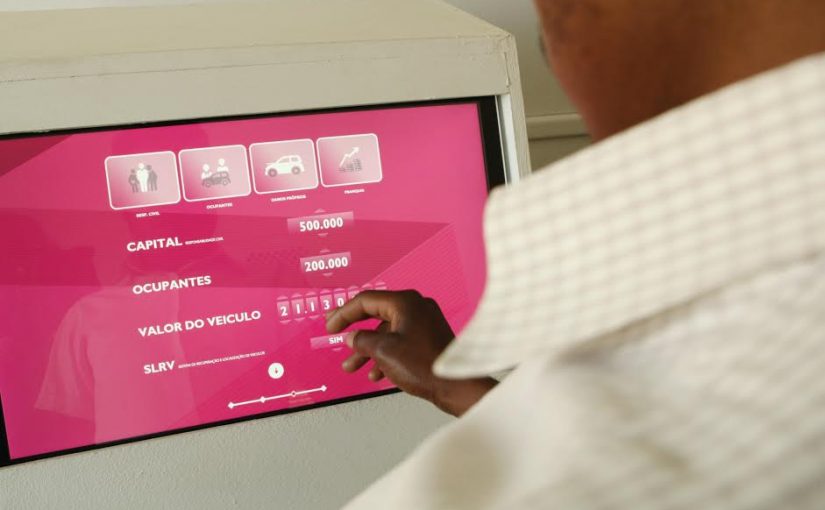Mozambique MozParks General Director elected Vice President of CTA in Maputo
SIM posts impressive results in a depressing year

Anima Estudio Criativo (Courtesy photo) / SIM (Impar) should benefit substantially from big natural resources related projects in Mozambique as it looks well positioned in the corporate segment.
Seguradora Internacional de Moçambique (SIM) published strong 2016 results amid a particularly difficult year for the Mozambican economy. Today, formerly-known insurance company Impar posted a jump of more than 295% in net profit last year, at MZM 2 billion or a little more than USD 28 million (including non-recurring gains and losses).
Such a performance is quite astounding, given that the Mozambican economy suffered an abrupt deterioration in 2016, following the revelation of a previous undisclosed public borrowing. As a result, GDP growth was 3.3% last year versus 6.6% in 2015. The World Bank has recently revised downward its forecast for 2017, now predicting a growth rate of 4.8% versus an initial forecast of 5.2%.
The insurance industry is generally highly cyclical, that is, highly correlated to the economic activity. Its revenues tend to rise when the economy grows and diminish when during periods of contraction, as the number of premium buyers lowers. But SIM, apparently, managed to withstand the macroeconomic headwinds that severely affected many Mozambicans. Probably for two reasons.
First, the insurance company, which provides both life and non-life products, seem to be well positioned in the higher-margin segment of the market, namely the corporate niche. It posts a 9.15% increase in revenues generated from premiums at its non-life businesses, thanks to the acquisition of “new large corporate clients”. Revenues from the life business are also solid, though, increasing by 7.2% last year.
Second, SIM is almost entirely (89% of shares) owned by Milliennium bim, a “big” universal bank, by African standards. Which means it does not need to wage a severe price war against competitors. Developing countries, including Mozambique, are indeed often characterized by a large number of undercapitalized firms who offer the lowest price possible in order to gain market share, rather than focus on the quality of service. Having a relatively liquid bank as its main shareholder may remove such short-minded temptation.
However, challenges lie ahead for SIM. As mentioned above, a cyclical industry needs growth. And all that support it. As an insurance company, which seeks to develop its franchise not only among corporate clients but also among particulars, SIM depends largely on the rate of increase of Mozambican personal income, in a market where the penetration rate is still extremely low.
That is why SIM supports the Government’s National Strategy for Financial Inclusion (Estratgia Nacional de Inclusão Financeira), which will also involve the participation of the Mozambican Regulatory Body of the Insurance Industry (Instituto de Supervisão de Seguros de Moçambique, ISSM) alongside the Ministry of Economy and Finance, the Bank of Mozambique as well as civil society organisations.
The Strategy aims at extending the use of the whole range of financial products and services to populations located in areas which were formerly inaccessible before the emergence of technological mobility (mobile payment systems and devices). It also stresses on the need to educate the massive number of adult people who never purchased a financial products, be it a bank account or an insurance policy.
“SIM believes that the low level of penetration of insurance products in Mozambique can be overcome by this national strategy, as defined by the institutions which will undertake it across the country”, states the firm in a press release published earlier today.
Another challenge lies in the recruitment of talented technical staff in Mozambique, where only very few individuals are familiar with insurance and risk management concepts. It may be worth reminding the announcement made by SIM’s parent company, Millennium bim, six days ago, informing about the signature of a memorandum of understanding with the Mozambican Embassy in Portugal.
The document, indeed, outlines the principles surrounding the identification process of young trained and qualified Mozambicans living in the southern European country, who may eventually consider returning to Mozambique, given an appropriate coaching and operational framework..
Finally, in terms of opportunities for SIM, news flow from the extractive sector will be determinant. The recent approval of the USD 4.6 billion Coral South Project, this week, by the Mozambican government, is encouraging. SIM explains that the “resumption” of big projects in the natural resources, agriculture, infrastructure, tourism and energy sectors is “decisive” for the acceleration of the economic activity. “The combination of all those factors will warrant a substantial growth of the Mozambican insurance industry”, concludes the group in a statement.
As a reminder, SIM provides life and non-life insurance products in Mozambique (workmans’s compensation, personal accident and health, fire and natural disasters, motor, marine, air, transport, to name a few). It was formerly known as Impar – Companhia de Seguros de Mocambique Sarl and changed its name to Seguradora Internacional de Mocambique (SIM) in November 2001. Headquarted in Maputo, the company was founded in 1992 and operates as a subsidiary of Banco Internacional de Moçambique (BIM).
By Levy Sergio Mutemba












Leave a Reply
Be the First to Comment!
You must be logged in to post a comment.
You must be logged in to post a comment.